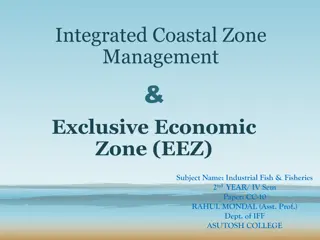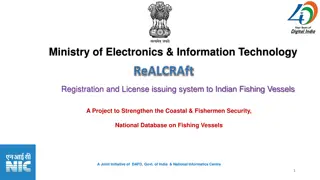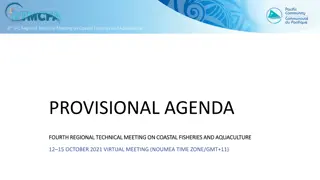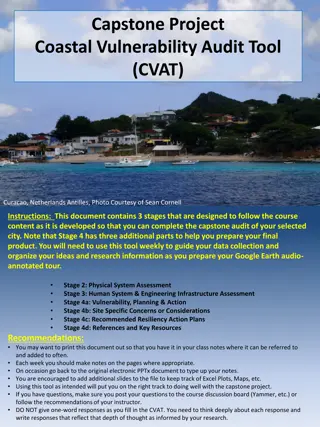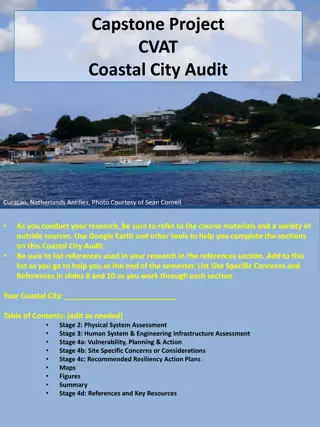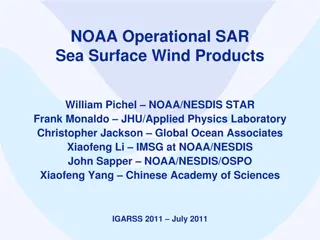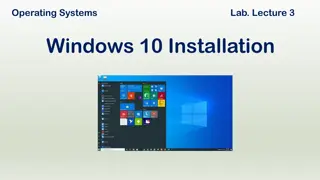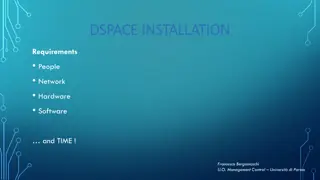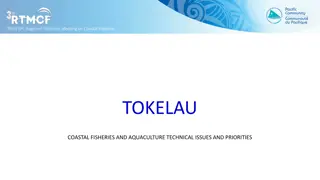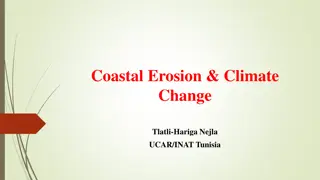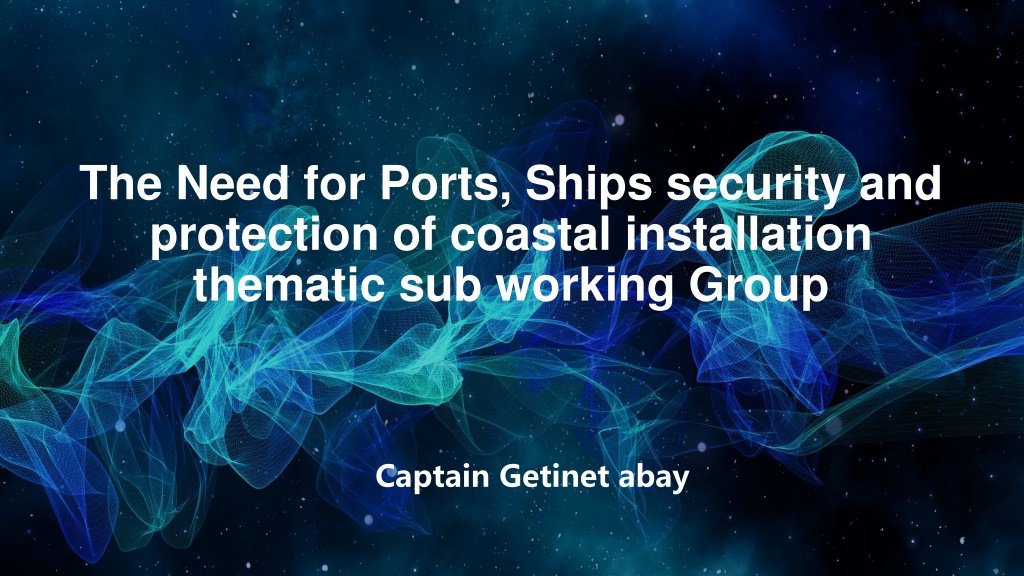
Enhancing Maritime Security: Challenges and Strategies
Coastal regions face numerous challenges in maritime security, including piracy, human trafficking, and advanced missile attacks. Collaboration and intelligence sharing are crucial to combat these threats effectively. Training personnel with continuous programs under the ISPS Code is vital to safeguard ports, ships, and trade routes against evolving risks.
Download Presentation

Please find below an Image/Link to download the presentation.
The content on the website is provided AS IS for your information and personal use only. It may not be sold, licensed, or shared on other websites without obtaining consent from the author. If you encounter any issues during the download, it is possible that the publisher has removed the file from their server.
You are allowed to download the files provided on this website for personal or commercial use, subject to the condition that they are used lawfully. All files are the property of their respective owners.
The content on the website is provided AS IS for your information and personal use only. It may not be sold, licensed, or shared on other websites without obtaining consent from the author.
E N D
Presentation Transcript
The Need for Ports, Ships security and protection of coastal installation thematic sub working Group Captain Getinet abay
01 Importance of Maritime Security 02 Nature of Emerging Threats Training Personnel for Modern Threats 03 CONTENTS Thematic Sub Working Group 04 Conclusion and Call to Action 05
Importance of Maritime Security 3 Urgency of Collective Action The surge in maritime threats highlights the need for collaboration among nations and organizations to implement effective strategies, share intelligence, and build comprehensive capacity for maritime security. Overview of the Current Landscape 2 Key Challenges Faced The primary challenges include piracy, human trafficking, and increasingly sophisticated missile and drone attacks, which are dynamic and require adaptive responses to safeguard maritime safety. 1 Maritime security is crucial for the stability and prosperity of coastal regions. It involves the protection of ports and ships against various threats while maintaining safe and secure trade routes essential for economic growth.
Nature of Emerging Threats Resurfacing of Piracy Piracy incidents have re-emerged as significant threats, particularly in vulnerable regions, undermining maritime commerce and instilling fear among shipping companies and crews. Missile and Drone Attacks The escalation of missile and drone attacks represents a sophisticated form of maritime threat, which calls for advanced technological responses and intelligence-sharing mechanisms among agencies. Human Trafficking Threats The maritime environment serves as a conduit for human trafficking, endangering lives and contributing to organized crime. This necessitates robust security measures to combat these heinous activities.
Training Personnel for Modern Threats Role of ISPS Code Importance of Continuous Training The ISPS Code provides a Skills and Knowledge Requirement comprehensive framework for Continuous training programs enhancing security in ports are essential to keep security and ships, serving as a Personnel must be equipped forces updated on emerging foundational policy for with in-depth knowledge of threats and evolving tactics, nations to align their maritime maritime threats and the enabling them to respond security measures and latest security measures to swiftly and effectively in crisis practices. effectively counteract situations. evolving risks and ensure robust protection of maritime assets.
The need to focus on this the sub Working Group 01 02 03 Objectives of the Sub Group Role of Institutions and Personnel Key Areas of Focus The primary objectives include enhancing collaboration among member nations, sharing best practices, and developing targeted training programs to strengthen port and ship security. Focus areas involve developing capacity in institutions, personnel training, intelligence sharing, and innovating security measures specific to regional threats and challenges. Institutions play a critical role in facilitating training programs and knowledge sharing, while personnel must embrace ongoing education to adapt to the fast-evolving maritime security landscape.
/05 Conclusion and Call to Action To strengthen the maritime security framework in the DCoC region, it is imperative for all stakeholders to engage actively, collaborate closely, and commit to building a resilient maritime environment. Interested institutions are encouraged to contact the DCOC secretariat for collaboration opportunities.
Thanks Reporter Reporter




